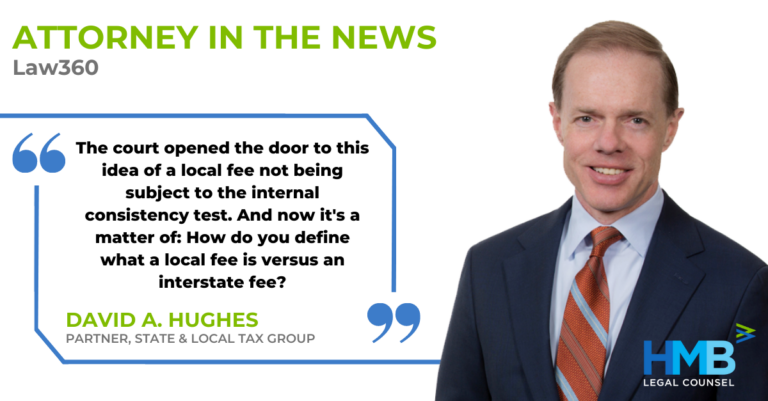The below excerpt is from Paul Williams’s article, “Justices’ Ferrellgas Denial Clouds Fee Apportionment Rules” published by Law360 on April 7th, 2022. Read the full article by Law360 here (subscription required).
The U.S. Supreme Court recently denied a petition from Ferrellgas Partners LP that claimed New Jersey’s partnership filing fee was unconstitutional and that a conflict existed between competing Supreme Court precedents.
According to David A. Hughes, there was little question that New Jersey’s fee fails the internal consistency test. He added American Trucking Associations Inc. v. Michigan Public Service Commission, or ATA v. Michigan, held that if a fee is locally focused then the internal consistency test does not apply to it. Without further Supreme Court guidance, the issue of how to gauge if a fee is local or not remains a murky concept for taxpayers and states to determine, David said.
David noted the New Jersey courts agreed the fee was local because it subsidized the cost of state employees processing partnership returns, which he added can be complicated, especially if they are handling voluminous amounts of returns for large partnerships. But it's still unclear whether ATA-Michigan compels an analysis of the activities of a taxpayer or the government purpose behind a fee to decide if the levy is local or not, he said.
"That's what the Supreme Court needs to address," David said. "The court opened the door to this idea of a local fee not being subject to the internal consistency test. And now it's a matter of: How do you define what a local fee is versus an interstate fee?"
David added that some state courts appear to have interpreted ATA v. Michigan differently. He noted a California appeals court in 2008 invalidated a fee that was imposed on a limited liability company’s worldwide income without respect to apportionment.
Read the full article by Law360 here (subscription required).



